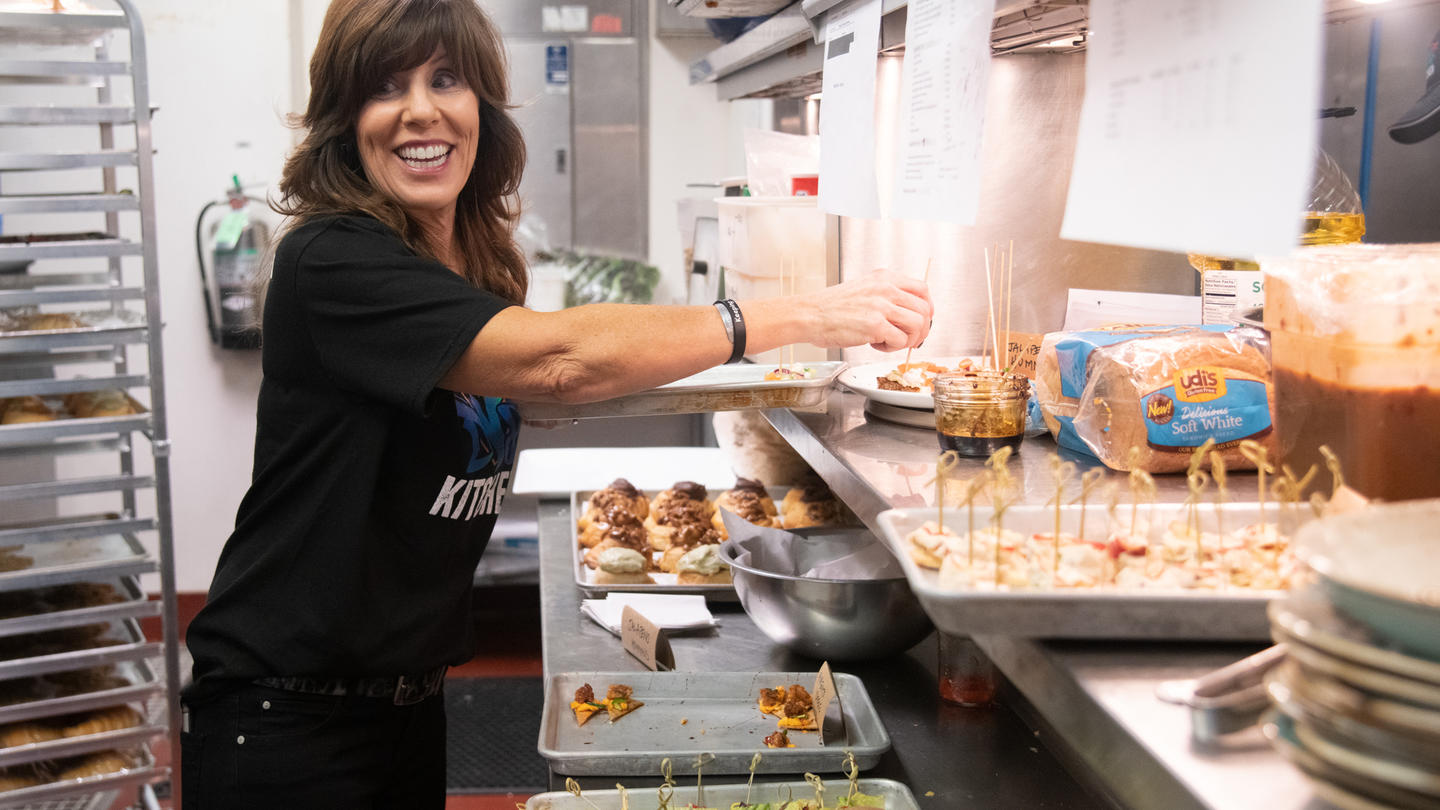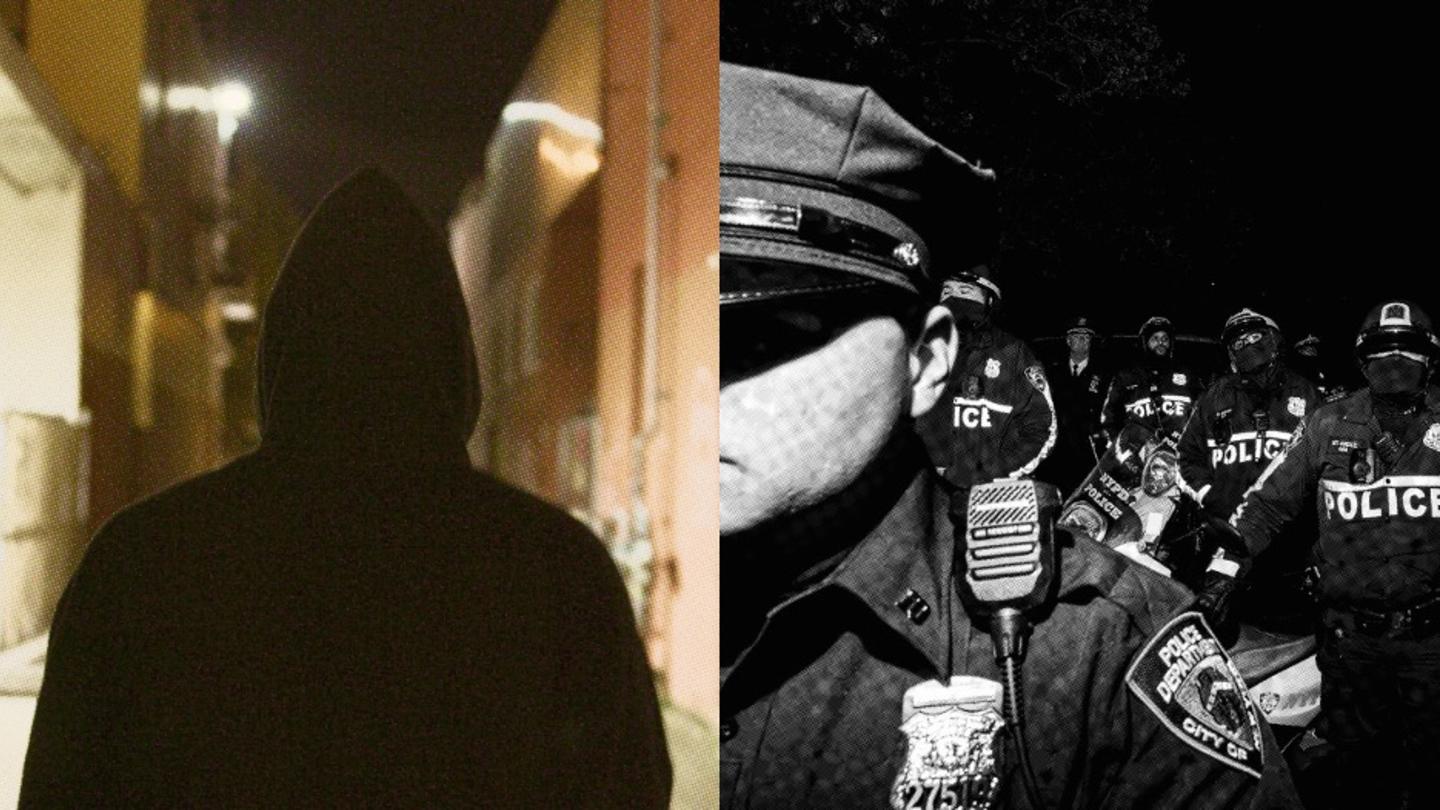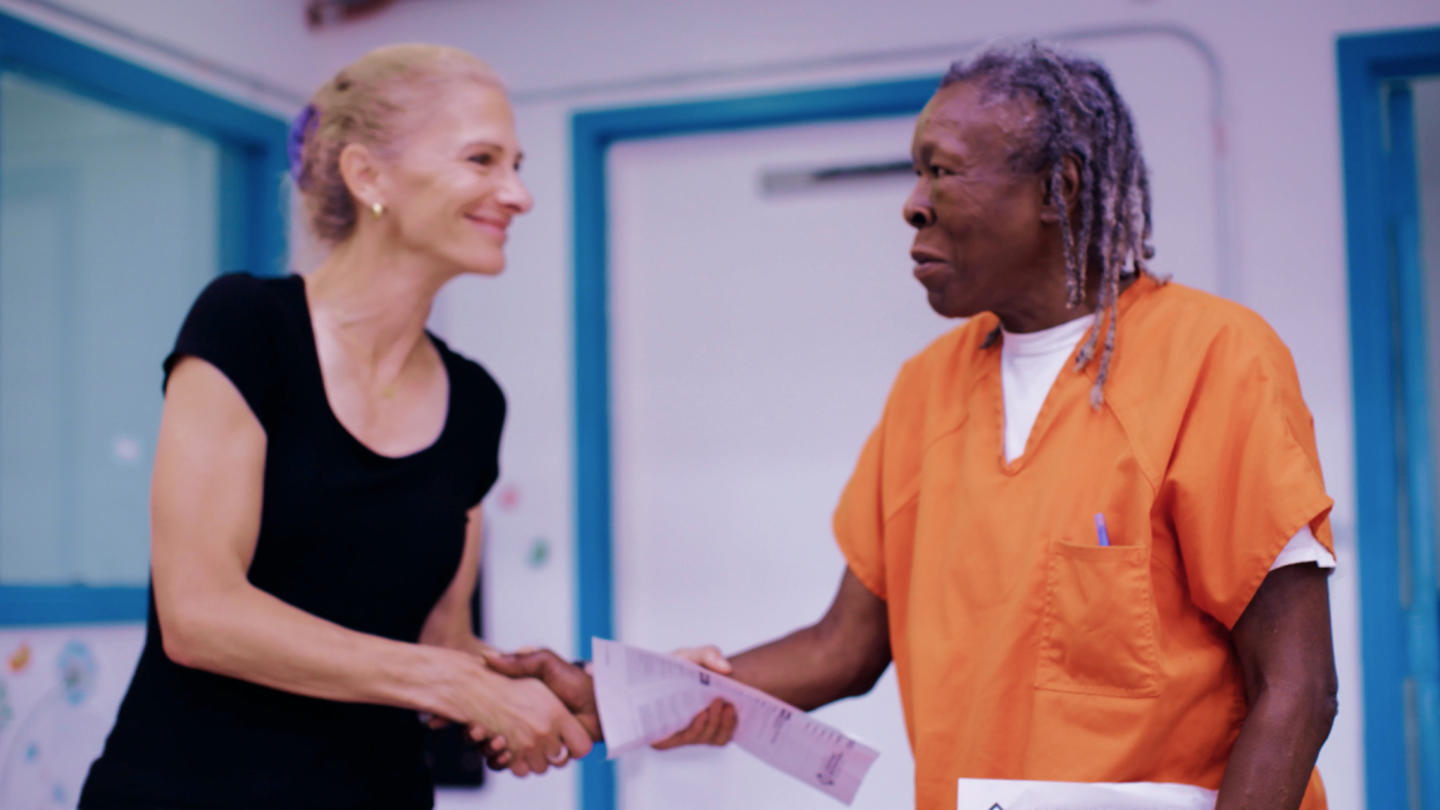The recipe for baking cinnamon rolls, found on the side of a tubular container of premade dough, is simple: place the precut rolls on a greased baking sheet, bake, top with premade icing.
But making cinnamon rolls from scratch is something different entirely — and the result can be infinitely more satisfying. Not only will the rolls taste better, but what's been accomplished is quite significant. The baker now has more knowledge and new skills to use moving forward and can now improve and change that recipe over time.
Recovering from substance use disorder isn't as different from this process as one might think. In fact, a restaurant in Lexington, Kentucky is demonstrating everyday a new and innovative way to help those entering recovery to thrive in their new life by hiring them and teaching them how to run a restaurant.
DV8 Kitchen combines accountability, workforce training, and a close-knit family of support, and these ingredients are empowering staff to change the recipe of their lives (and yielding some pretty incredible food at the same time).
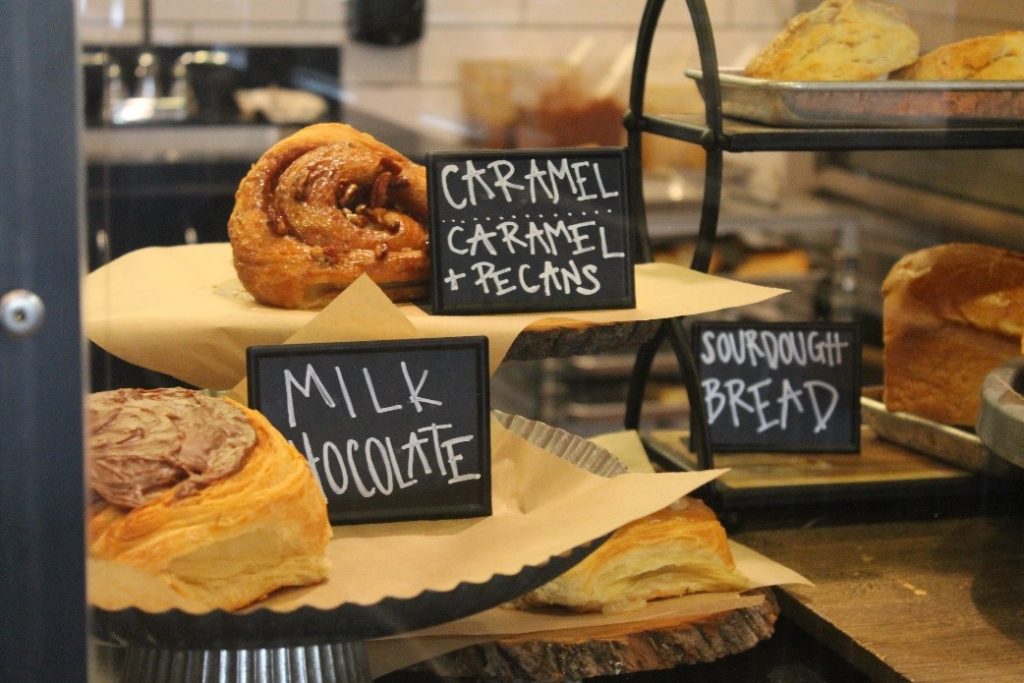
It was Diane's radical new idea to open a restaurant that hires only people in recovery. But her husband, Rob, thought it was a terrible idea.
Although he understood firsthand the struggle with substance use disorder and was nearing his 30th year of recovery, Rob's desire to help didn't outweigh his instincts as a businessman and seasoned restaurateur.
He and his wife had employed many people with a history of substance use disorder at their other restaurants, and the results were, as Rob says, "disastrous." They hired more than 60 people over eight years, who ended up costing $800 each to train. Then, they'd work for two weeks and disappear. Neither the employee nor the restaurant benefited.
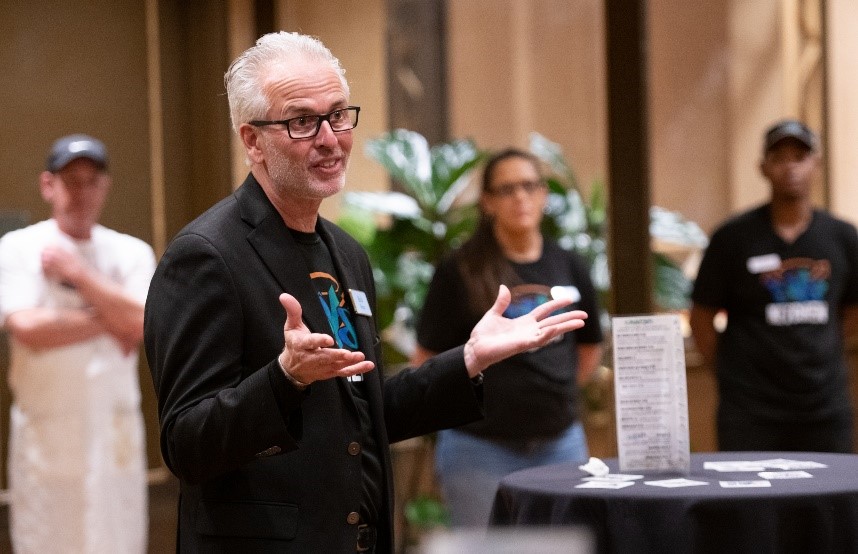
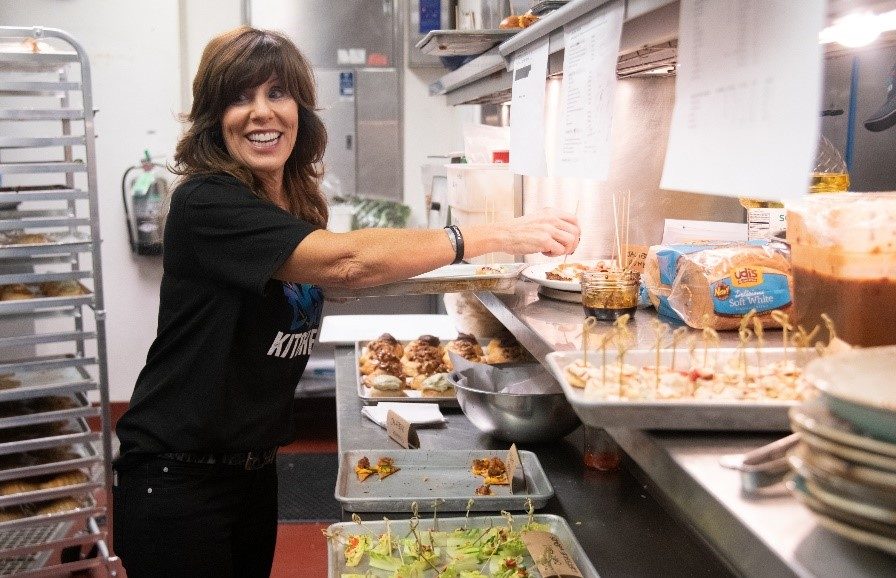
But with risk comes the potential for far greater reward.
Diane wouldn't give up on the idea. Opening a restaurant to help people in recovery was too important a goal to abandon out of fear. And this time it would be different. It would work.
When Rob challenged Diane and laid out the math of their previous failures with hiring people in recovery, Diane had some math of her own to share. "Well check this math out. In the last eight years, we've lost ten people to fatal overdoses. I don't care how much it cost. I don't care," Diane told Rob. That's when she got tough with Rob and showed him the difference between transaction and relationship.
"You've got to contemplate what your contribution in life is. And right now, what you're doing is you're doing a task list and it's transactional. It's not relational. And that's what I think's going to fix business."
Diane Perez, cofounder of DV8 Kitchen
Diane continues, "It's going to fix social issues. It's going to really address our faith. How do you put your faith in action? And I think that we can accomplish this all through a restaurant."
Diane was right. In August 2017, Rob and Diane opened DV8 Kitchen in Lexington, staffed only by those in the early stages of recovery who were looking for meaningful work. As expected, there were a few bumps in the road, but in 2019, Yelp ranked it as the 40th best place to eat in the U.S.
Opening this restaurant was like baking cinnamon rolls from scratch, without a recipe. Rob and Diane didn't plan on taking the prepackaged approach many treatment programs do, and that was risky. But society desperately needs more innovative approaches to addiction recovery and the potential to save more lives is a worthy reward.
More than 20 million Americans suffer from substance use disorder, yet only about 20% of them undergo treatment. And 40% to 60% of those who participate in a treatment program will relapse. And those relapses happen, on average, seven times. This data begs for a new approach.
Although the typical treatment program equips participants with some knowledge and tools for short-term rehabilitation, many programs fail to provide a supportive community — the key to long-term recovery.
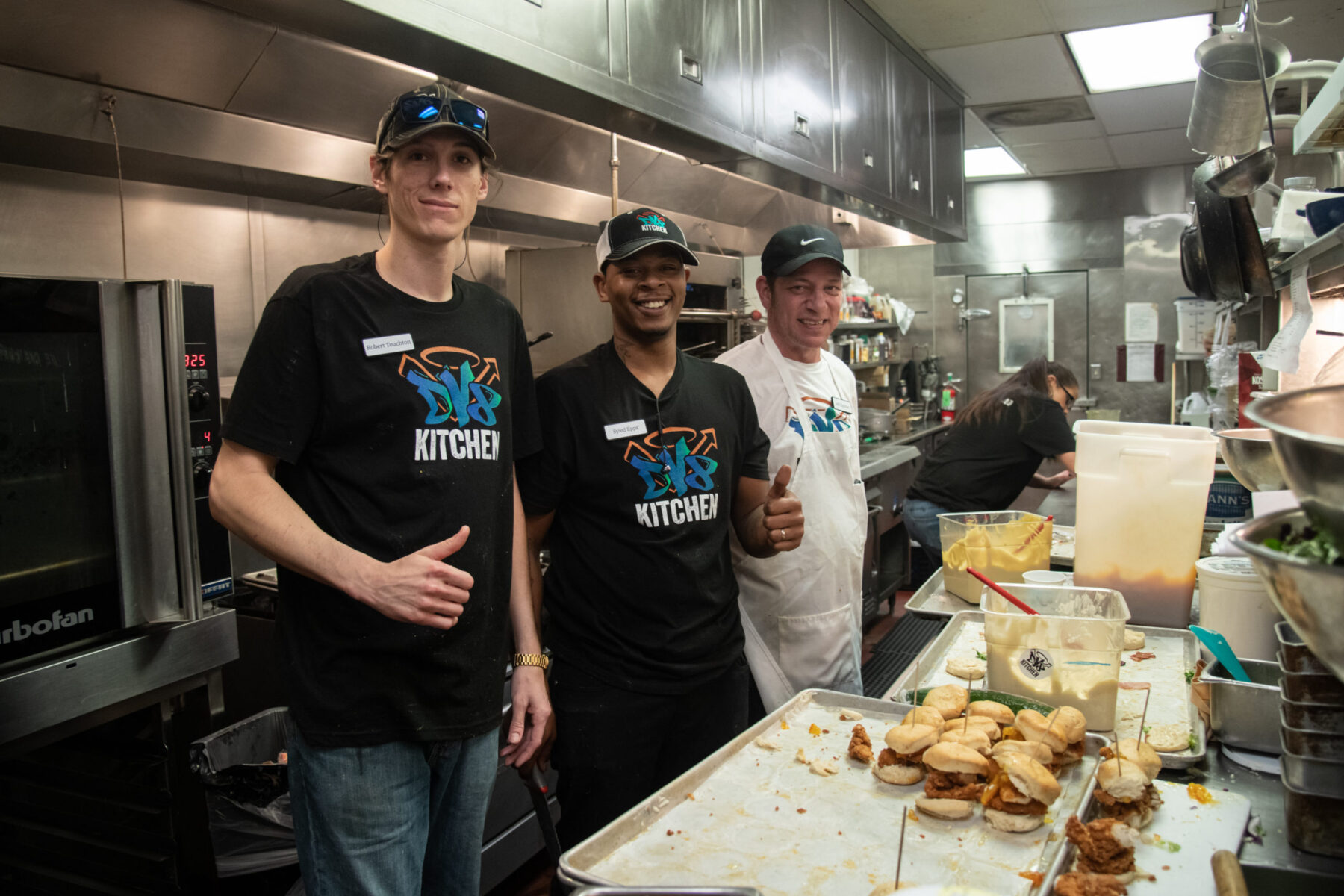
Relationships are an essential ingredient in DV8's model. Rob feels strongly that you don't need to be a social worker to employ people in recovery – you just need to care about building relationships with the people around you.
DV8 partners with treatment facilities in the area. Typically, a residential facility recommends their clients to DV8 at the beginning of the rehabilitation process, but some individuals accept positions at DV8 as a next step in the journey once their 30, 60, or 90-day programs end. This partnership provides the structure and accountability of a recovery community and the purpose of a job. The Perez's look for only one qualification in an applicant — and it has nothing to do with food.
"We say, 'Hey, look, if you prove to us in an interview that you're dedicated to recovery, we don't even care if you've worked in a restaurant,'" said Rob. "That's the crazy thing."
Jennifer didn't have any experience baking before starting a job at DV8 in 2018. But she did meet the one requirement.
"The job coordinator [at my treatment facility] knew I was looking for meaningful employment because I was working a dead-end job, making minimum wage, and it was just hard to make ends meet. So, she hooked me up with DV8 and I went to an interview and I got the job."
Now, she's a senior baker, responsible for opening the bakery every day, arriving at 4 a.m. and making the bread DV8 serves and supplies to 14 local shops.
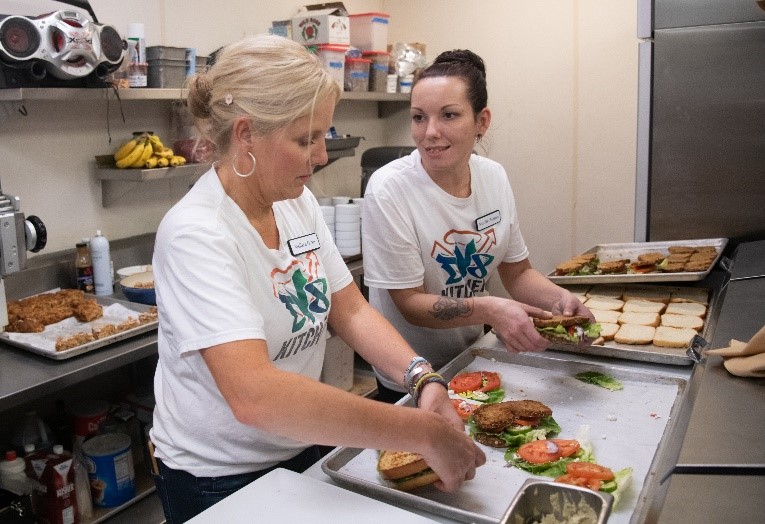
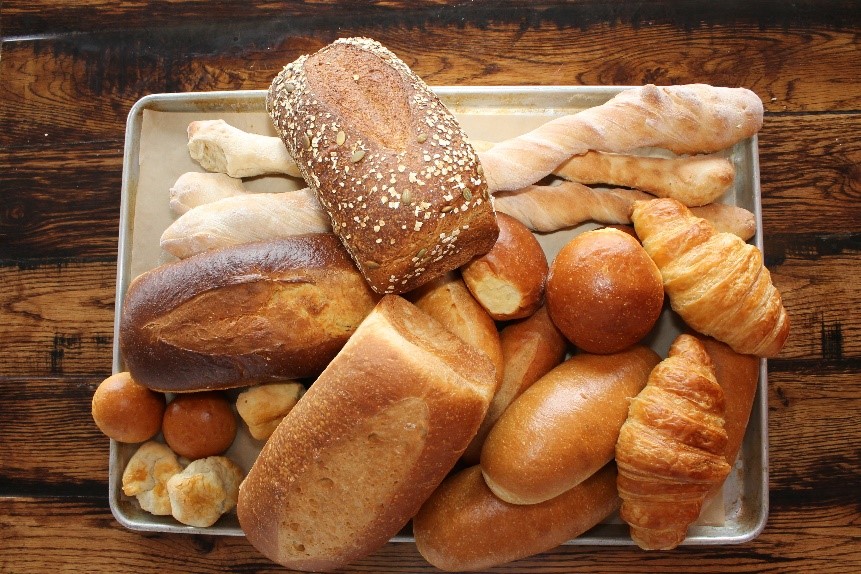
Robert, on the other hand, did have prior restaurant experience when he started at DV8 in March 2018. Like Jennifer, he was looking for more than just a job.
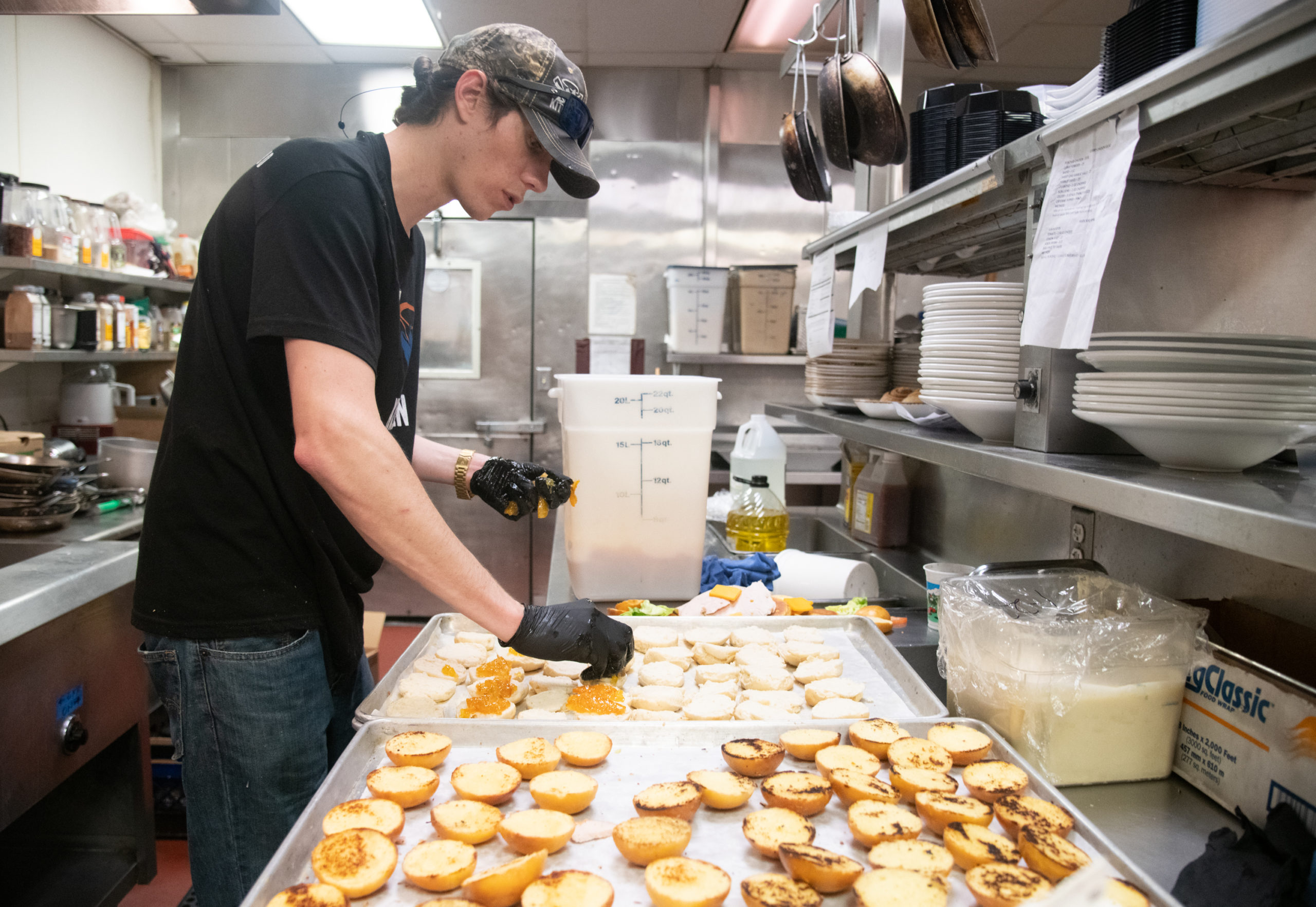
"You know, there were guys that were going out [after graduating the treatment program] and working 40 hours a week, but they weren't staying sober," Robert said. "They were coming right back in the front door, starting all over again."
This is one of the origins of a stigma that Rob Perez is very familiar with. "Automatic failure. That [people in recovery are] going to be a waste of time and waste of money," he described. But he also understands the truth.
"You do not need to lower your standards to employ someone in recovery," Rob said during a Stand Together Foundation event last year. "In fact, we think you should raise them."
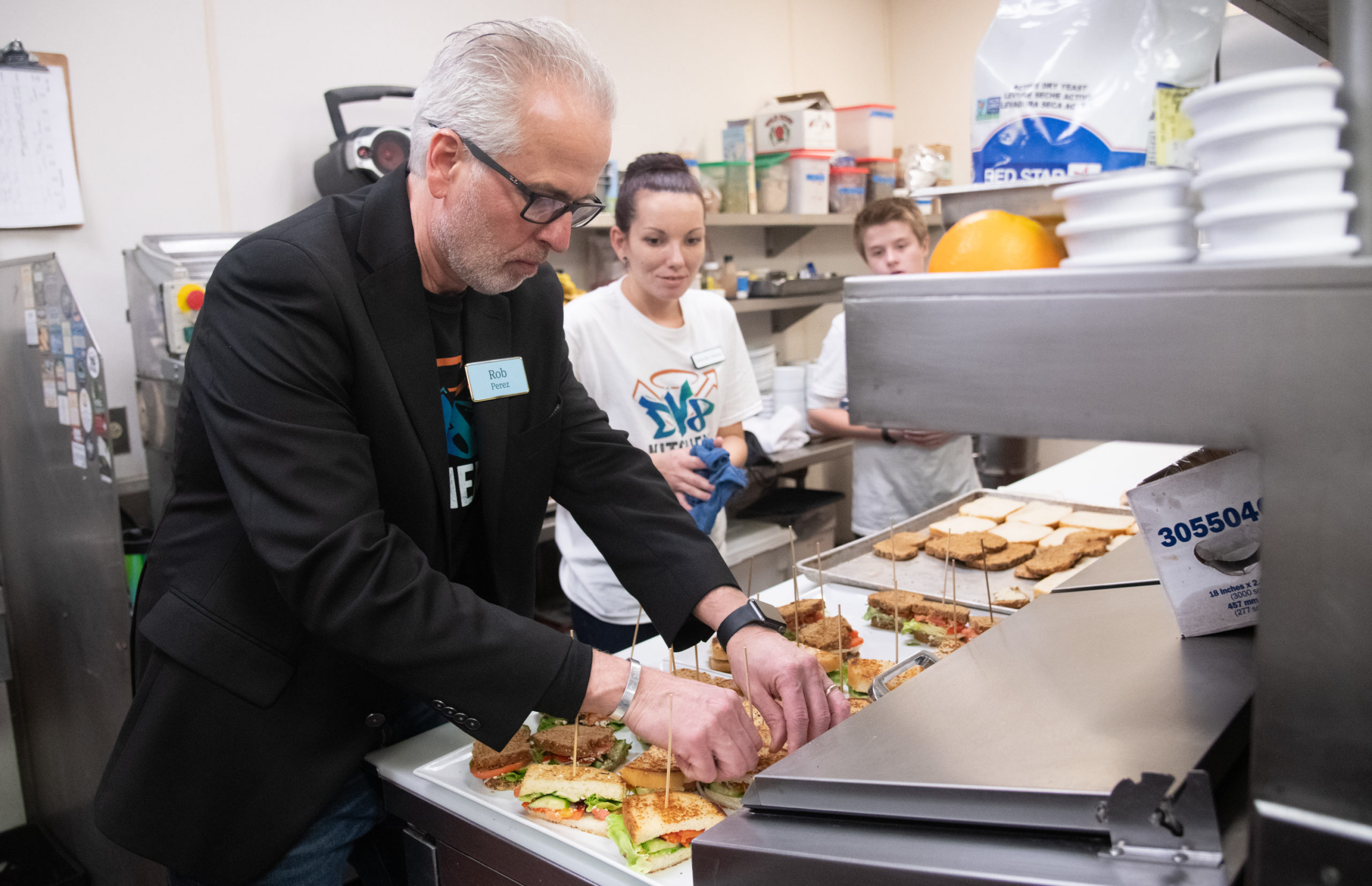
"We came to find out that our employees frequently shared one thing, and that was shame. It was both the cause of their addiction and the result of it," Rob continued. "We realize that a job is the very best, most perfect place to build them up. So, we raised our standards, not because our employees were capable of meeting that standard, but because they needed to see that they could."
"Twenty percent better," is the mantra at DV8. The Perez's demand that employees be 20% better in all aspects of the restaurant, from greeting guests to food preparation. Rob will happily acknowledge that DV8 employees are "never less than excellent." Those who want to turn their lives around are some of the most determined people out there.
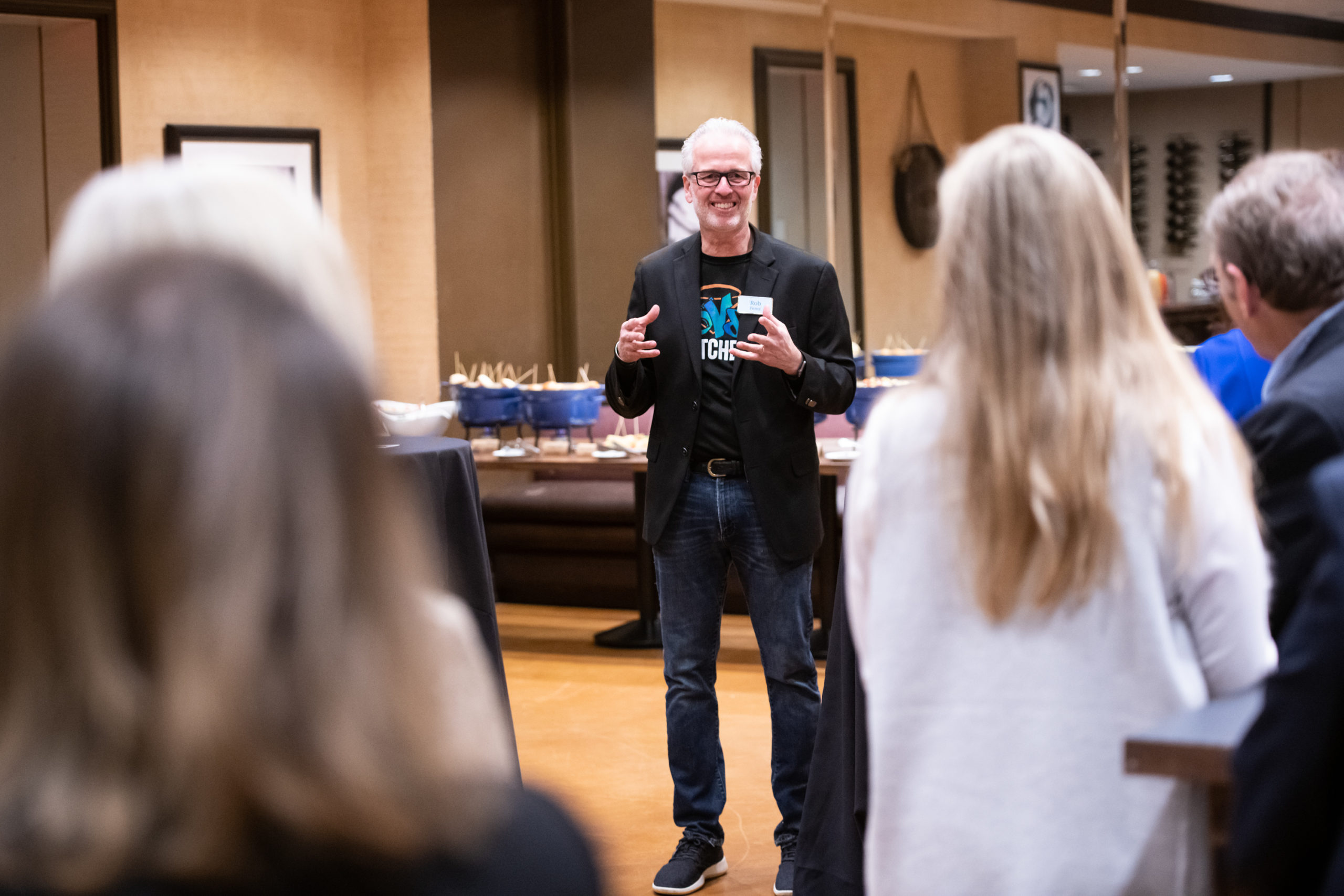
Robert, the staff member who joined DV8 in 2018, was determined to not be a relapse statistic. He is now a cook and a food-prepper with a bright future.
"Being able to work there and have this this window of accountability, and people around me doing the same thing, trying to work a program, staying sober, holding people accountable," he said. "It just fit right into what I needed at the time."
He credits DV8 with helping him become open to taking a new approach to life. Through the friendships he made at the restaurant he met his fiancée. They're now expecting a baby in April.
Robert says DV8 Kitchen is "something that I have never experienced in my whole life. It's just like God finger-picked all this stuff for me and just opened a door of blessings into my life to be able to be around food, and being able to serve people my passion and see somebody's face when they buy something and bite into it and love it… I thought I lost that forever. I really did. Being able to restore those things back into my life, it's just amazing."
Jennifer recently got her peer support certification and hopes to, one day, help people in recovery. Like Robert, she credits DV8 with helping her turn her life around and is happy in her current role at the restaurant and loves training new hires.
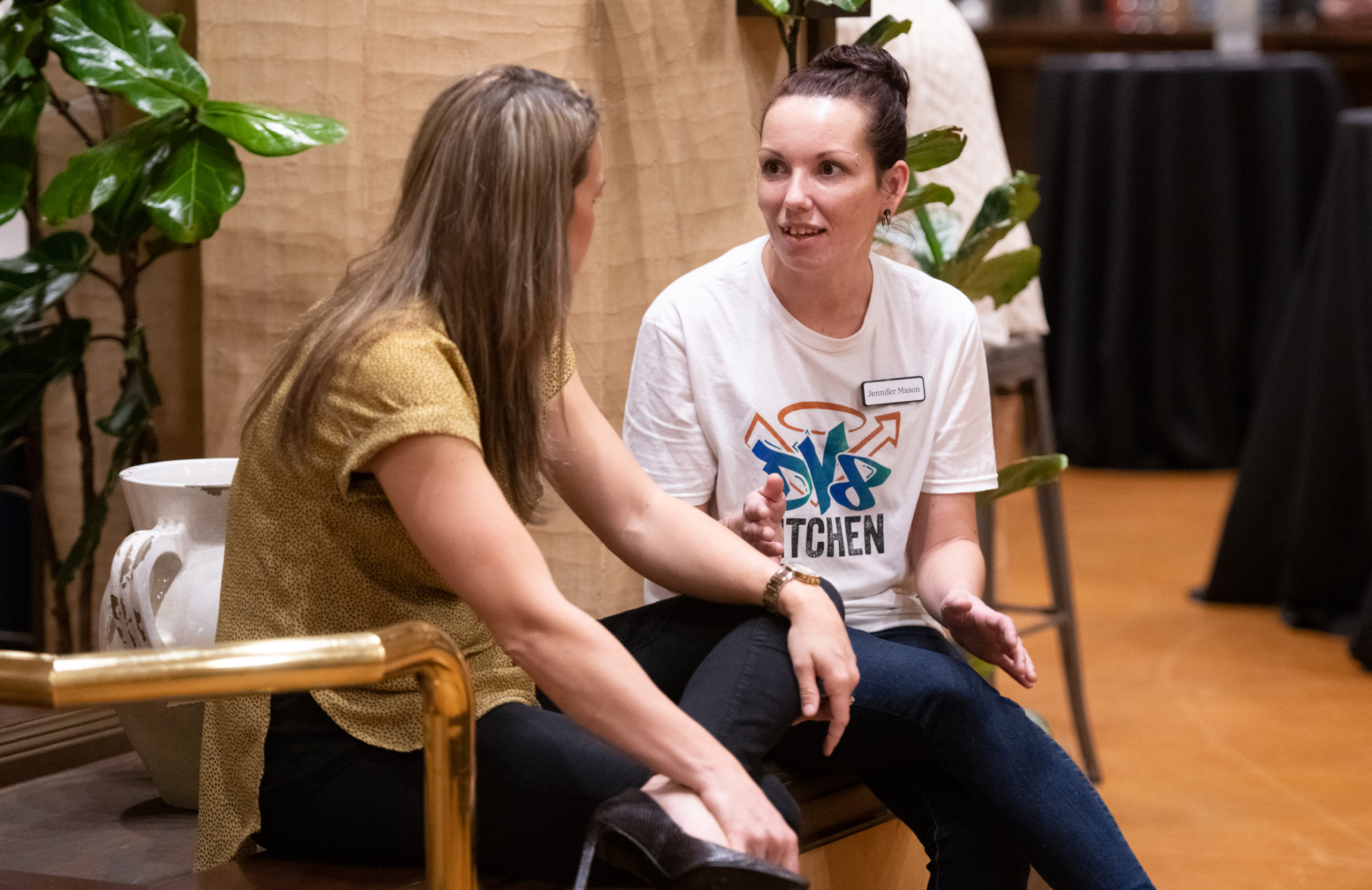
"I just I love the new people because I get to watch them grow and I get to help them grow," she said. "That's probably my favorite part.
"DV8 has taught me so many lessons, so many lessons — mainly to build relationships," Jennifer continued. "The most important things in life are building relationships, and showing people grace and showing myself grace," she said. "Those are two major things that I've learned since working at DV8 and that I'll try to carry with me daily."
"People at work, we call Rob 'Dad' and we call Diane 'Mom'. They're like our distant parents," Jennifer said. "They just love us, and they don't look at us like second-chance employees. That's my favorite thing about them. They treat us like regular people. And most people don't treat us that way. [Most people] see us as our disease or our disorder."
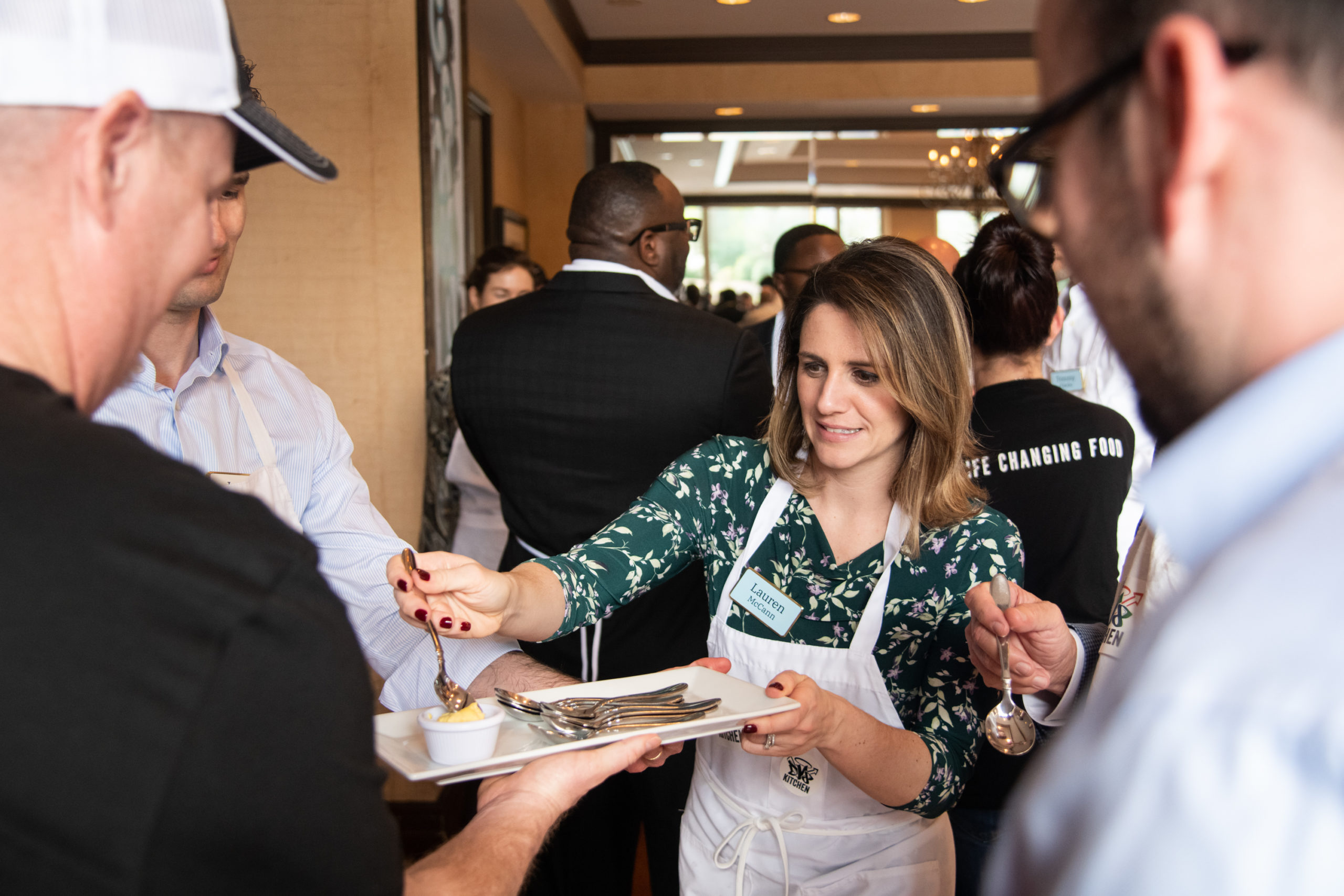
Rob and Diane knew that a workplace could truly foster long-term recovery only if it had the perfect balance of support and discipline. Although it took a couple tries to get the recipe just right, they've found the best techniques to perfect it.
Like the recipe for success Rob and Diane have created for their brand of second chance hiring, the recipe for successful recovery takes multiple steps. Perfecting the baking process at DV8 requires learning essential lessons, both inside and outside the kitchen.
Take crème brûlée cinnamon rolls, a recipe DV8 staff taught during a cooking class at a recent Stand Together event. Staff members took turns speaking to how each step of the process related to the recovery journey.
(1) Start the dough. A good recipe begins with quality ingredients — no shortcuts. A person can be successful at DV8 only if they already have the right ingredients within them, none more important than commitment to recovery.
(2) Sheeting. This step is crucial, as it gives layers of flavor to the dough. It's a complex process, but so is recovery. There are steps that must be followed precisely. Having meaningful work makes that process more attainable.
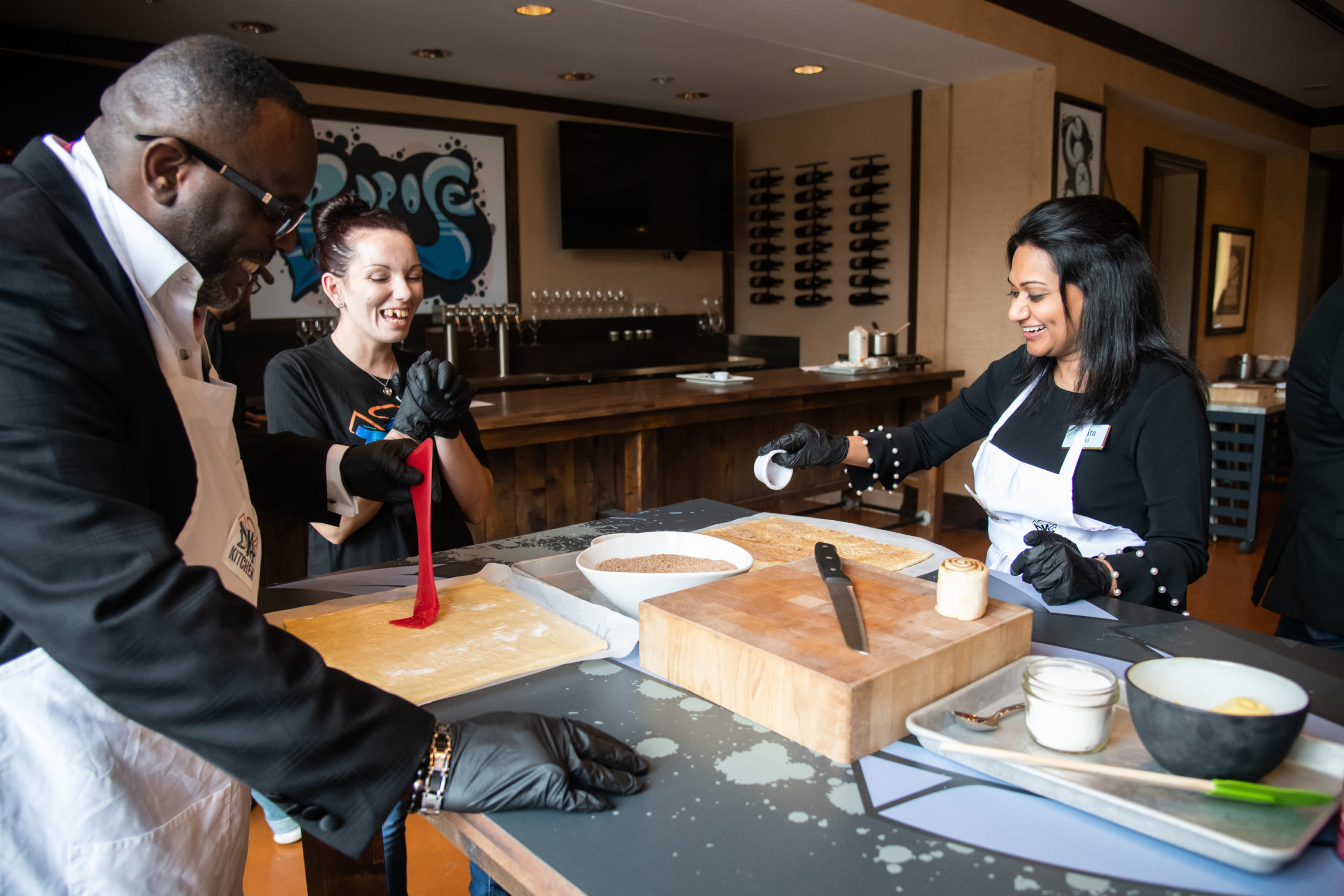
(3) Shape the dough. This step involves stretching, spreading, and rolling the dough. (This is Jennifer's favorite part of making bread. "It's just therapeutic," she says.) When working the dough, the layers of butter, sugar, and cinnamon are visible. Much like work and recovery, they go hand-in-hand.
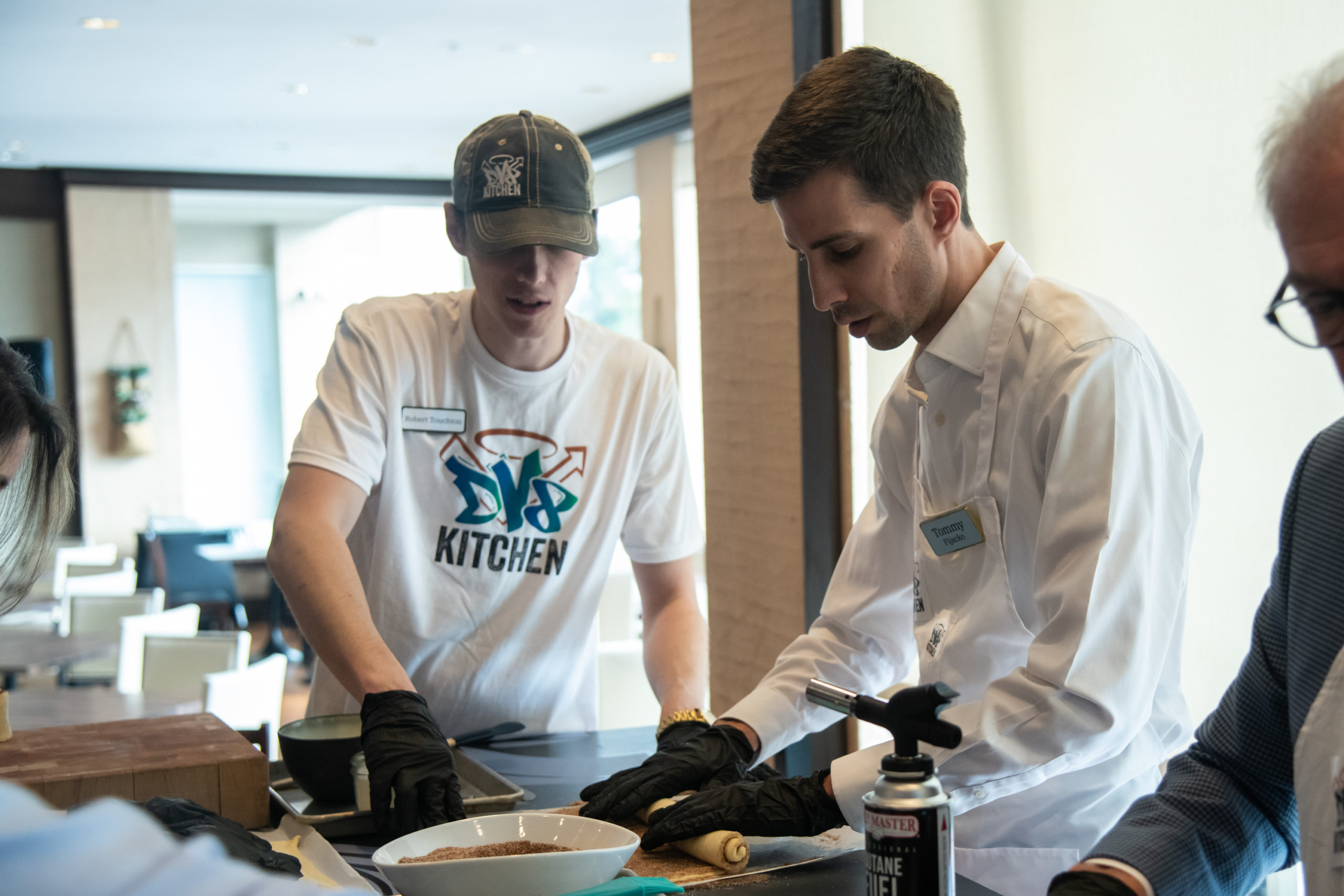
(4) Cut, proof, bake. In this step, its crucial to have temperature control, which requires planning, preparation and awareness of the conditions around you. People in recovery can set their ideal conditions by choosing to surround themselves with the correct programming, people, places, and activities to support recovery.
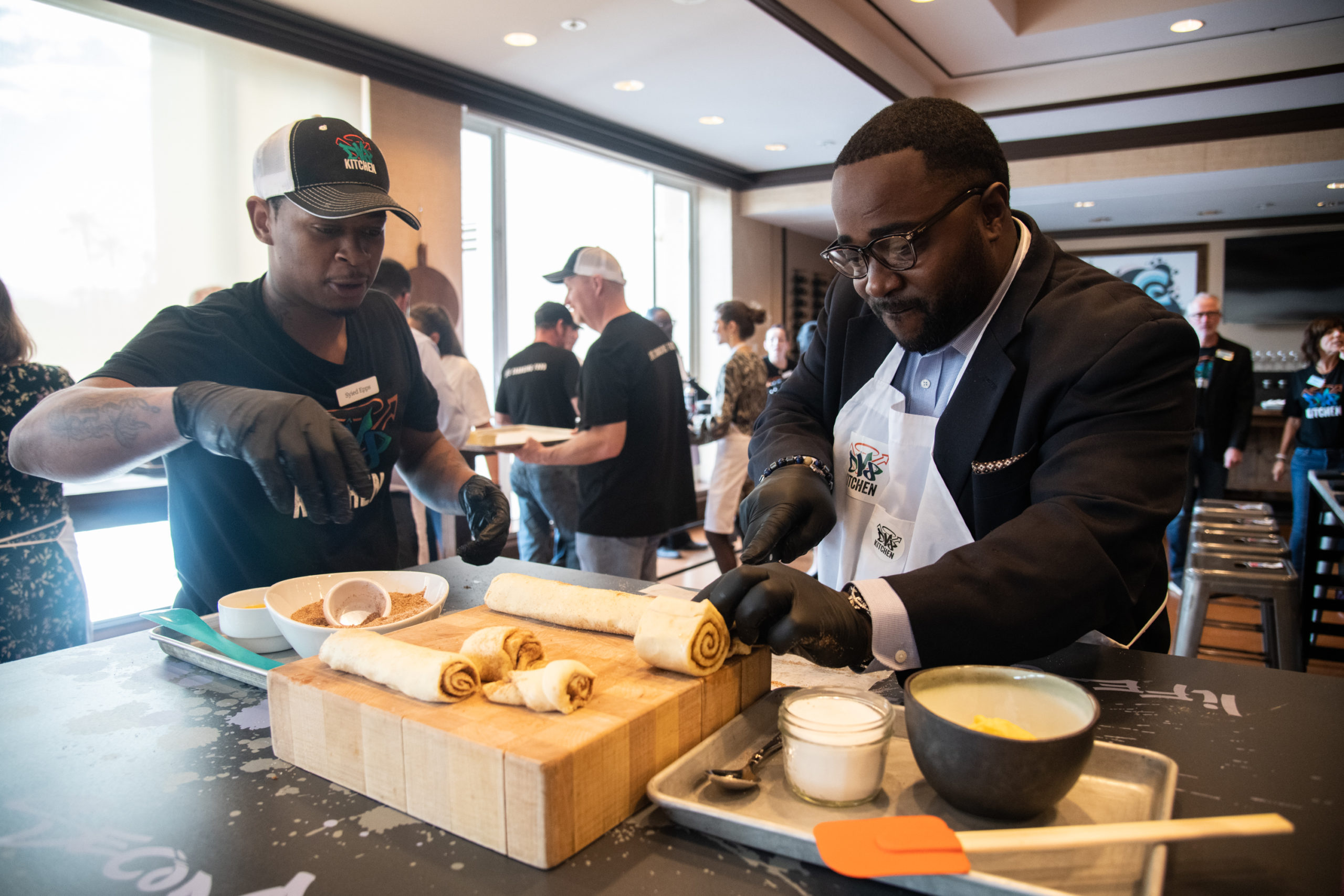
(5) Make the sauce. Without the topping, a cinnamon roll is still a cinnamon roll. But the icing can make it even better. A good recovery program and job should be topped off with a focus on loved ones, hobbies, health, and other aspects that enhance quality of life.
(6) Top & torch. Making a crème brûlée requires taking a torch to the top of the dessert and caramelizing the sugar. The same is required for the crème brûlée topping on this special cinnamon roll. Sure, the flame is showy and gets your attention. But the reason for including this step is because it just makes the desert taste better. DV8 employees aim to do the correct thing at work, in recovery and in life, not because it looks good, but because they truly want to improve themselves.
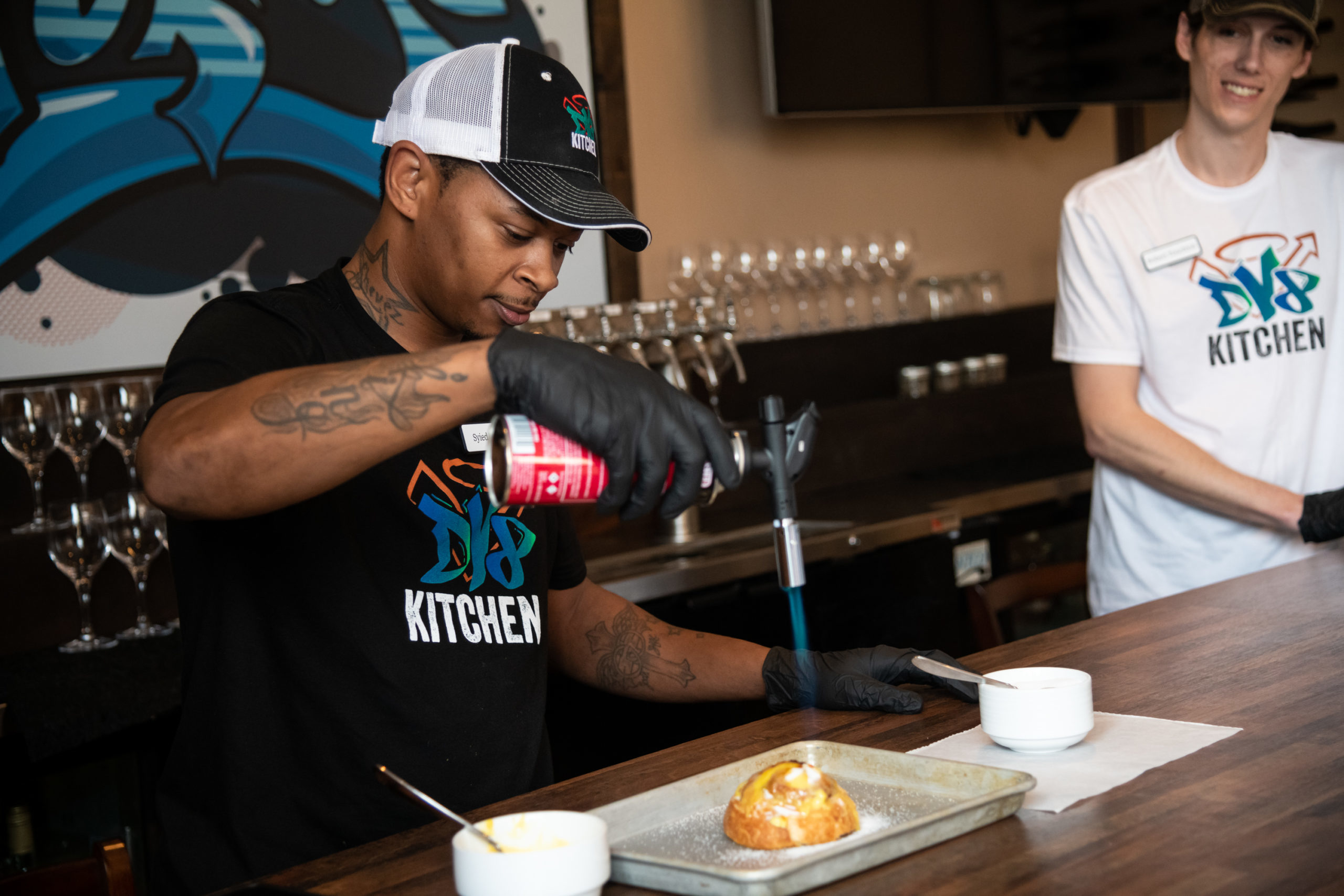
Rob and Diane are determined to change the misconceptions of business leaders hiring people in recovery, and drive a culture change.
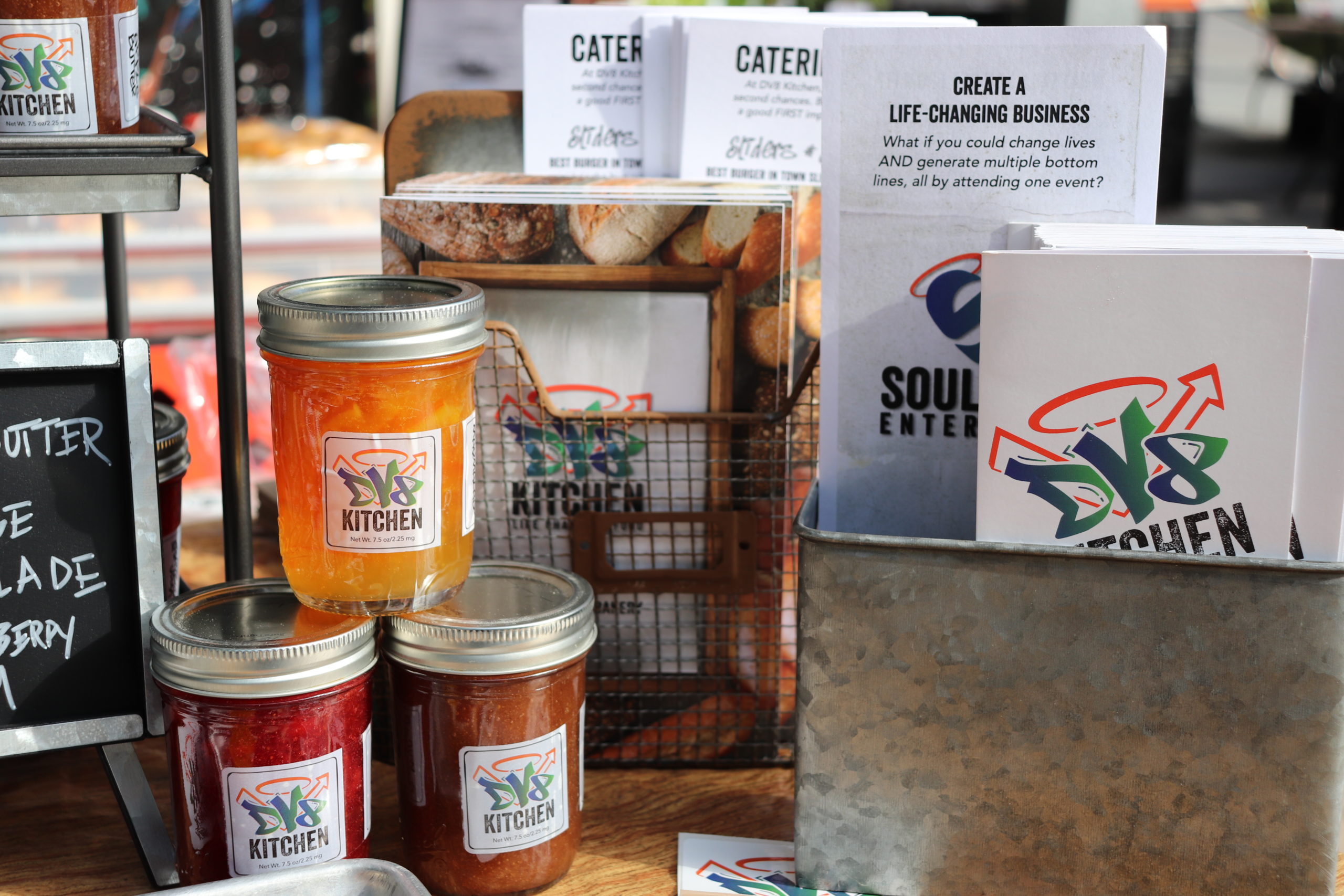
"Sadly, many other businesspeople thought like me," Rob said, "that it was way too expensive and a waste of time to hire someone with a past of addiction. But you see, our results suggest something different," says Rob.
They've formalized the DV8 business model and through their program called Soulfull Enterprise, they are working with dozens of other businesses to apply it to their own operations. It's an immersive training experience teaching other businesses how to hire and train second chance employees. Now Toyota, Taco Bell, the University of Kentucky and others are deviating from the stigma as well. Rob and Diane hope to bring the DV8 model to more businesses around the country and change the way society thinks about hiring people in recovery.
DV8 Kitchen is supported by Stand Together Foundation, which partners with the nation’s most transformative nonprofits to break the cycle of poverty.
Learn more about Stand Together’s criminal justice efforts and explore ways you can partner with us.
